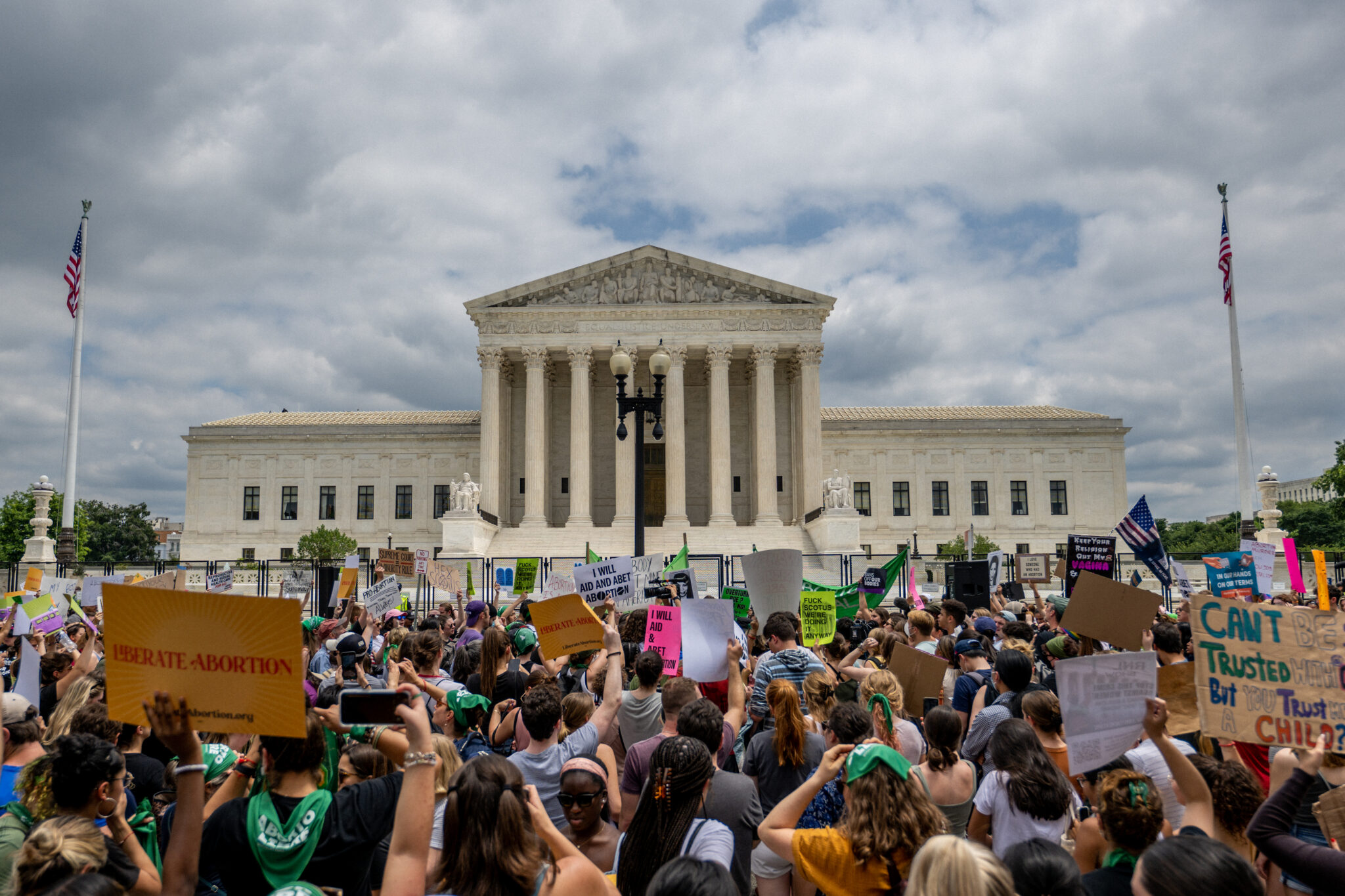19:27
Commentary
Commentary
Missouri AG doesn’t want the public to know he’s pushing wild legal theories in abortion cases
In a press release and tweets announcing his amicus brief in a Texas abortion case, Missouri Attorney General Andrew Bailey describes a relatively limited objection to a recent FDA policy change, which allows for medication abortion to be dispensed at pharmacies.
After summarizing the brief’s claims that medication abortion is unsafe, the press release states: “The brief concludes with asking the court to grant a preliminary injunction halting the FDA’s new rule.”
This is false.
The brief contains no such request, but instead joins the plaintiffs’ request for an unprecedented and sweeping injunction aimed at banning the most common form of abortion everywhere in the United States.
Bailey has made something of a slogan of “enforcing the laws as written,” but this is only one of a litany of instances in which he has made novel and extremist arguments in legal documents aimed at restricting abortion outside Missouri — and then mischaracterized those arguments to the public.
The new FDA rule that Bailey falsely claims is the subject of his brief does little more than bring medication abortion more in line with standard medical practice, in which a doctor typically writes you a prescription rather than handing you pills. Still, the objection to the new rule may seem reasonable to people unfamiliar with the safety of abortion provided via prescription or telemedicine. But this is not a moderate attempt to maintain the status quo.
Biden administration appeals judge’s ruling ordering abortion pill off U.S. market
Bailey is actually arguing that a handpicked anti-abortion judge in Texas can and should order the FDA to reverse its 23-year-old approval of mifepristone, which is used with misoprostol to essentially induce a miscarriage in early pregnancy. Even conservative legal scholars have explained that the case should not go forward because the anti-abortion plaintiffs lack standing to sue, their claims are past the statute of limitations, and they have failed to identify what provision of the relevant law they are alleging the FDA has violated.
Were this effort to succeed anyway, it could upend our system of drug regulation and threaten the availability of any medicine or vaccine targeted by activists.
Despite all that, Bailey argues mifepristone should be taken off the market because medication abortion is six times more likely to result in complications than aspiration abortion, and therefore has no therapeutic benefit. This is an odd argument given that performing an aspiration abortion is also a crime in Missouri, and a misleading one because six times the extremely low rate of complications associated with aspiration is still very low.
The 2015 study that Bailey cites found 0.87% of women who had aspiration abortions and 5.2% of those who had medication abortions experienced complications, “the vast majority of which were minor and expected.” The most common complication of medication abortion is incomplete abortion, which can be treated with more misoprostol or aspiration.
Bailey also takes a quote from the study out of context to claim complication rates are underestimated, when the authors actually wrote that their study was designed to avoid that possibility, and that 5.2% may be an overestimate due to the characteristics of the patients studied and because symptoms that would resolve on their own like bleeding and cramping sometimes result in treatment for complications.
The study also notes the complication rate is much lower than for childbirth.
The marginal difference in complication rates is irrelevant because the existence of a different, more invasive procedure that isn’t an option until later in pregnancy is not a reason for the FDA to fail to do its job of approving medications that are safe and effective, which mifepristone proved to be in the four years it took the FDA to grant approval and the decades since.
Bailey’s brief identifies doctors who once provided abortions in Missouri by name, mischaracterizes their testimony in past litigation, and falsely accuses them of lawbreaking and malpractice. On the basis of these attacks, he argues the complication rate must be vastly higher than any study has ever shown. He argues FDA policy “threatens to permanently sever women from the physician relationships that are critical to properly resolve complications that inevitably occur.” But in Missouri, that relationship is severed by state law.
Though the policy of Missouri is not to ensure a patient receives optimal abortion care, but to force her to remain pregnant unwillingly, Bailey’s brief is a throwback to the pre-Dobbs era, in which anti-abortion politicians claimed they were not trying to deprive women of abortion, just trying to improve the standard of care.
However, if Bailey and the plaintiffs are able to make mifepristone unavailable, providers of medication abortion may have to abandon the exhaustively studied gold standard of the mifepristone/misoprostol regimen for misoprostol-only abortions — which are safe, but associated with more cramping, nausea and incomplete abortions.
Where providers switch to providing only procedural abortion, patients will be forced to have a more invasive abortion at a later point in pregnancy because wait times for appointments will increase more than they already have at clinics inundated with out-of-state patients since the fall of Roe.
Additionally, more patients who would have sought care out of state will resort to ordering gray-market abortion pills from the internet to end their pregnancies.
Fortunately, Bailey’s predecessor and Gov. Mike Parson (during Bailey’s tenure as his General Counsel) have indicated Missouri law exempts women who self-manage their abortions, and legal and medical hotlines are available to assist those who choose to do so. But for a person who would prefer to see a local medical provider or even one in a neighboring state, it is an indignity to be deprived of care. Bailey’s logic-defying argument that an injunction against mifepristone would promote a higher standard of care for abortion patients is ill-informed or, more likely, disingenuous.
The brief also endorses an even more outlandish new legal argument that Bailey has fleshed out a bit more in letters threatening pharmacy chains not to stock abortion pills even where abortion is legal, which he sent on behalf of 21 Republican Attorneys General. Bailey claims that the Comstock Act — an 1873 anti-vice law that hasn’t been enforced in over a century, but once outlawed the mailing of things like information about contraception — currently makes it illegal to mail or ship anything that can be used in an abortion.

Bailey writes in the letters: “The text could not be clearer: ‘every article or thing designed, adapted, or intended for producing abortion … shall not be conveyed in the mails.’”
The missing words behind the ellipsis are “or for any indecent or immoral use,” perhaps omitted because the idea that shipping something “immoral” is currently a federal crime punishable by up to five years in prison would tell the reader something about the soundness of his argument.
Even when contraception was generally illegal, courts interpreted the Comstock Act not to prohibit the mailing of items intended for legal uses. The Department of Justice has released a legal opinion that explains this in detail and advises that the Comstock Act could only be applied (if ever) where the shipper intends for an item to be used for an illegal abortion. A shipper will seldom know whether mifepristone is intended for illegal use because there are legal uses for it in even the most abortion-restrictive states. For example, some states allow victims of rape to have abortions or allow abortion before six weeks gestation. All allow abortion when necessary to save the life of the patient. Mifepristone is also used to treat miscarriages and Cushing’s disease.
Bailey’s letter mocks the DOJ’s conclusion that a drug with legal uses can be shipped and received, but is opaque about how far his Comstock Act theory goes. He does not merely say pharmacies may not mail mifepristone to patients. He tells the pharmacies that no one may “obtain” or “send and receive” abortion pills. Because abortion pills have to be mailed or shipped via common carrier to get to any abortion clinic or medical office, this amounts to a claim that, under current law, mifepristone cannot be legally provided anywhere in the country.
Furthermore, Bailey refers to “abortion pills” rather than mifepristone. So he appears to be suggesting it is also illegal to transport the ulcer medication misoprostol, which can be used without mifepristone for both medication abortion and miscarriage treatment. And while Bailey’s letter focuses on abortion pills, other proponents of this theory contend that because the Comstock Act prohibits transporting any “article or thing” used for abortion, procedural abortion also cannot be provided legally anywhere in the U.S.
One would expect Comstock prosecutions to be brought by federal law enforcement rather than a state AG. This is presumably why Bailey makes a legally dubious threat that his fellow state AGs or private parties could prosecute instead by somehow using anti-racketeering or state deceptive trade practices laws.
In the absence of a more plausible state law hook, Bailey invents a kind of mini-Comstock Act with this mischaracterization: “In Missouri, for example, it is unlawful to distribute an abortion drug through the mail.”
What the law he cites actually did, back when abortion was legal in Missouri, was require abortion providers to dispense mifepristone to patients in-office. It was never the case that abortion providers had to obtain mifepristone at the factory where it was manufactured because it was illegal to receive it via mail or FedEx.
Bailey’s letters do hint at the somewhat more realistic threat that a future Republican president’s Attorney General would adopt the currently “off-the-wall” Comstock Act theory being pushed by ultra-conservative legal innovators and prosecute companies or individuals who transported mifepristone during the Biden administration.
Despite Bailey’s maximalist stance, much of the media coverage of his letters has misunderstood him to be merely telling pharmacies they may not mail abortion pills to patients. Bailey’s public statements appear to deliberately invite this misunderstanding.
A final example of Bailey’s lack of candor about his audacious legal arguments are his press release and tweets announcing an “Amicus Brief to Block the VA from Providing Taxpayer-Funded Abortions.” Conveniently omitted from these statements is the fact that the Veterans Affairs Administration may only provide abortion care to a veteran or their family member when the patient is a victim of rape or incest or when her life or health is at stake.
Despite the limitations of federal preemption and intergovernmental immunity law, signers of the brief have threatened to prosecute doctors who provide abortions at VA facilities to servicemembers who are pregnant as a result of rape.

Ultimately, the fact that Bailey and his fellow abortion opponents have to resort to using the force of law at all stems from their utter failure to make the case to women that ending a pregnancy is immoral. The pioneering legal gymnastics reflect a fear that they cannot make the case to voters either. This is of a piece with efforts to block Missourians from decriminalizing abortion via referendum or ballot initiative.
Bailey’s inventive legal interpretations and unwillingness to describe them frankly suggest he knows his constituents don’t want what he does. We’ll find out any day now if Bailey can get a judge in Texas to impose his will instead.
Our stories may be republished online or in print under Creative Commons license CC BY-NC-ND 4.0. We ask that you edit only for style or to shorten, provide proper attribution and link to our website. AP and Getty images may not be republished. Please see our republishing guidelines for use of any other photos and graphics.






Bridgette Dunlap